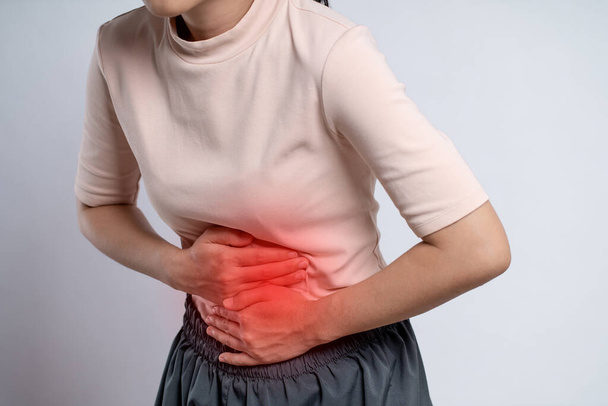Keto diets have become increasingly popular in recent years, and it’s easy to see why. These high-fat, low-carbohydrate diets have been found to be incredibly effective for weight loss and improved health.
However, for people with gastritis, a condition where the stomach lining becomes inflamed, the keto diet may not be the easiest to maintain. We’ll go over the pros and cons of the keto diet for people with gastritis and help you decide whether this diet is right for you.
What is Gastritis
Gastritis is a condition that affects the lining of the stomach. Several things, including an infection, an autoimmune disorder, or stress, can cause it. “Chronic gastritis is still one of the most common serious pandemic infections with such severe killing sequelae as peptic ulcer or gastric cancer,” Scandinavian Journal of Gastroenterology reports.
Gastritis symptoms include nausea, vomiting, abdominal pain, bloating, and indigestion. Some people with gastritis also experience weight loss, fatigue, and loss of appetite.
How Keto and Gastritis Are Linked?
The keto diet is a high-fat, low-carbohydrate diet that is effective for weight loss and other health conditions. However, no research shows that the keto diet is effective for treating gastritis.
Some experts believe that the keto diet may make gastritis worse. This is because the keto diet can lead to nutrient deficiencies and dehydration, exacerbating gastritis symptoms.
If you have gastritis, you should speak with your doctor before starting the keto diet or any other weight-loss plan.
Pros
- Helps reduce inflammation – The keto diet is high in fats and low in carbohydrates, which means that your body goes into a state of ketosis, where it burns fat as energy instead of glucose. This can help reduce inflammation in the body, including in the stomach lining.
- Can reduce symptoms of gastritis – A high-fat, low-carbohydrate diet can help alleviate symptoms of gastritis, such as bloating, nausea, and abdominal pain.
- Can lead to weight loss – The keto diet has been shown to be highly effective for weight loss, which can help reduce the symptoms of gastritis.
Cons
- Can cause digestive issues – The high-fat content of the keto diet can cause digestive issues such as constipation, diarrhea, and bloating, which can exacerbate symptoms of gastritis.
- May be difficult to maintain – The keto diet can be difficult to maintain, especially if you are used to a high-carbohydrate diet. This can make it challenging to stick to, especially if you have a busy lifestyle.
- Can cause nutrient deficiencies – The keto diet is low in carbohydrates, which means it can be low in certain vitamins and minerals that are crucial for good health. This can lead to nutrient deficiencies and other health problems.
Tips for Incorporating Keto into Your Diet
- Start slowly – If you’re new to the keto diet, start slowly by gradually reducing your carbohydrate intake and increasing your fat intake.
- Incorporate healthy fats – Focus on incorporating healthy fats into your diet, such as avocados, nuts, and fish.
- Be mindful of your fiber intake – To prevent digestive issues, make sure to consume plenty of fiber, such as leafy greens, fruits, and vegetables.
- Work with a nutritionist – A nutritionist or dietitian can help you create a meal plan that works for you and your specific dietary needs.
While the keto diet can have many benefits for people with gastritis, there are also potential downsides to consider. Before starting any new diet, it’s essential to speak with your doctor or a nutritionist to ensure it’s right for you.
By incorporating healthy fats, being mindful of your fiber intake, and working with a professional, you can safely and effectively incorporate the keto diet into your gastritis management plan.
Keto Diet and Gastritis – Why You Should Avoid It
If you’re struggling with gastritis, chances are you’ve considered trying the keto diet as a way to find relief. After all, the keto diet has been shown to be an effective treatment for several other health conditions, such as obesity and type 2 diabetes.
However, there is no evidence to show that the keto diet is effective for treating gastritis; some experts believe that it may actually make it worse. Here’s why:
Keto and Complete Nutrition
One of the biggest concerns with the keto diet is that it can lead to nutrient deficiencies. This is because the keto diet restricts a number of healthy food groups, including fruits, vegetables, whole grains, legumes, and dairy products. These food groups are essential for good health and provide our bodies with important vitamins, minerals, and antioxidants.
Not getting these nutrients from your diet can lead to problems like fatigue, weakness, constipation, and headaches. For people with gastritis who are already dealing with nausea and vomiting, these problems can be even more severe.
Keto Diet and Dehydration
Dehydration is another problem that can occur when you’re on the keto diet. This is because the keto diet causes your body to lose a lot of water weight in urine. You may also experience dehydration if you’re sweating more than usual or not drinking enough fluids throughout the day.
Dehydration can cause problems like dry mouth, excessive thirst, fatigue, lightheadedness, and dizziness. For people with gastritis who are already dealing with nausea and vomiting, dehydration can make these symptoms even worse.
Keto Diet and Stress
The keto diet can also increase your stress levels. This is because when your body doesn’t have enough carbohydrates to burn for energy, it starts to break down protein. This process produces toxins called “ketones, “ which can cause inflammation in your body.
Inflammation is a known trigger for stress. If you‘re already dealing with chronic stress, the last thing you need is another factor that could potentially worsen your symptoms.
How to Avoid Stomach Problems on Keto?
Sticking to a ketogenic diet can be difficult, and it’s common to experience unpleasant digestive symptoms.
To make the transition easier and help your stomach adjust, focus on eating high-quality whole foods like lean proteins, non-starchy vegetables, and healthy fats.
- Avoid processed carbs, artificial sweeteners, and other low-quality ingredients that could potentially trigger an upset stomach.
- Additionally, drinking enough water daily will help keep your digestive system running smoothly by preventing constipation and bloating.
- Lastly, ensure that you get enough electrolytes from nutrient-dense sources such as dark leafy greens or sea salt.
The Bottom Line
Although the keto diet has many potential benefits, it‘s not suitable for everyone. If you have gastritis, you should avoid this diet as it may worsen your symptoms.
Instead, speak with your doctor about other treatment options that may be more appropriate for you.
FAQ
What diet is most effective during gastritis?
If you suffer from gastritis, you need to ensure that your diet is helping you manage your symptoms. The best way to do this is by following a gastritis diet plan which focuses on nutrient-dense foods that reduce inflammation and heal the gastrointestinal tract.
A well-balanced gastritis diet can usually include lean proteins such as fish, poultry, eggs; whole grains, fresh vegetables and fruit, plus reduced consumption of dairy products and processed carbohydrates.
It’s also recommended to avoid drinks containing caffeine or alcohol, as these can irritate the stomach lining. With some effort and strategic eating, following a nutritious diet can help treat and prevent flare ups associated with gastritis.
Horrible heartburn on keto?
Anyone who has ever suffered from heartburn knows that it can be a truly miserable experience. The burning sensation in the chest, the sour taste in the mouth – it’s enough to ruin even the most delicious meal.
And for those on the ketogenic diet, heartburn can be a common problem. The keto diet is known for its ability to help people lose weight, but it can also lead to some unwanted side effects, including heartburn.
Luckily, you can do a few things to help ease the pain.
- First, try avoiding trigger foods such as spicy or acidic dishes.
- You might also want to eat smaller meals more often throughout the day, and avoid eating right before bedtime.
- And, of course, stay well-hydrated by drinking plenty of water.
Following these simple tips can help you control your heartburn and enjoy all the benefits of the keto diet.


[…] RELATED: Keto Diet and Gastritis – Everything You Need to Know […]
[…] RELATED: Keto Diet and Gastritis – Everything You Need to Know […]
[…] RELATED: Keto Diet and Gastritis – Everything You Need to Know […]